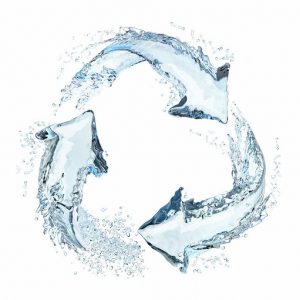New Research Quantifies the Benefits of Water Recycling
 As water supplies in California become less reliable due to a shifting climate, pursuing alternatives to imported water has become essential. Among the alternatives to imports, advanced recycled water for direct potable reuse is a strategy that may be implemented across the state once developing regulations are finalized. By reducing the distance that water travels, this strategy would also reduce the energy required to bring clean water to the tap.
As water supplies in California become less reliable due to a shifting climate, pursuing alternatives to imported water has become essential. Among the alternatives to imports, advanced recycled water for direct potable reuse is a strategy that may be implemented across the state once developing regulations are finalized. By reducing the distance that water travels, this strategy would also reduce the energy required to bring clean water to the tap.
New research from the UCLA Luskin Center for Innovation finds that advanced water recycling could meet up to 57% of the water needs in Los Angeles County, while providing statewide energy savings equivalent to powering about 400,000 California homes. These findings were presented at the Water Research Foundation’s national conference and California’s WateReuse Conference, and are informing policy-making in cities including Los Angeles that are planning recycled water projects.
Potential next research steps will be to analyze how water recycling might affect the power grid and will examine how water agencies can help shift energy loads in Los Angeles to reduce costs to the grid and customers. The California Energy Commission and the US Department of Energy support this research through the joint U.S.–China Clean Energy Research Center for Water-Energy Technologies (CERC-WET). CERC-WET is a multi-million-dollar consortium with over 29 research teams developing knowledge for thriving in a future with constrained energy and water resources in the changing global climate.


